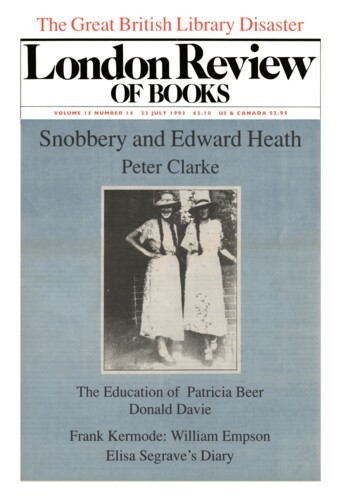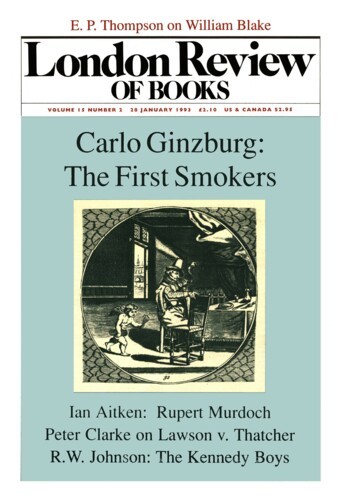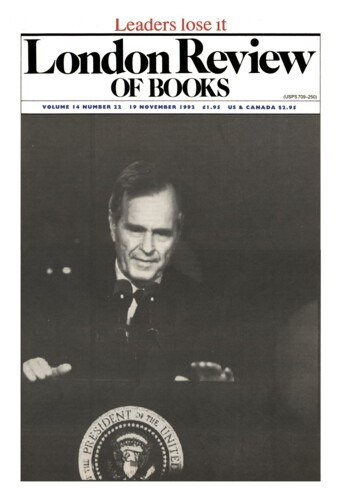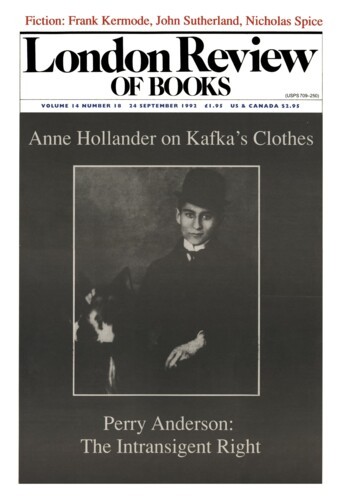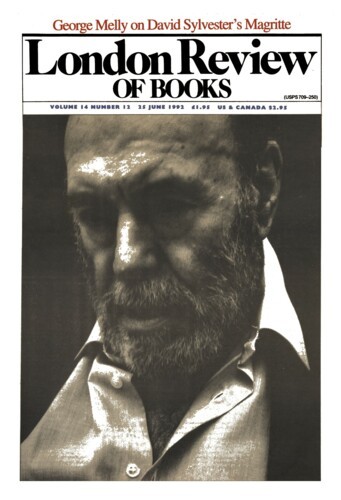Tale from a Silver Age
Peter Clarke, 22 July 1993
Time was when the leadership of the Tory Party passed smoothly and gracefully from one incumbent to the next, as the old leader, full of years and honours, felt moved to bow out and the new leader duly ‘emerged’. Behind the scenes, of course, it was often more tetchy, but appearances were decently kept up. No one supposed that Arthur Balfour, that inveterate political animal, was weary of politics when he pulled out in 1911, as he showed by insinuating himself into most of the Cabinets formed during the next twenty years. Like-wise, Austen Chamberlain’s displacement as Conservative leader in 1922 came as a rude shock. It was said that he always played the game and always lost it; having lost, his recriminations were private; in public he continued to play the game, in due course receiving the Foreign Office as a consolation prize.
